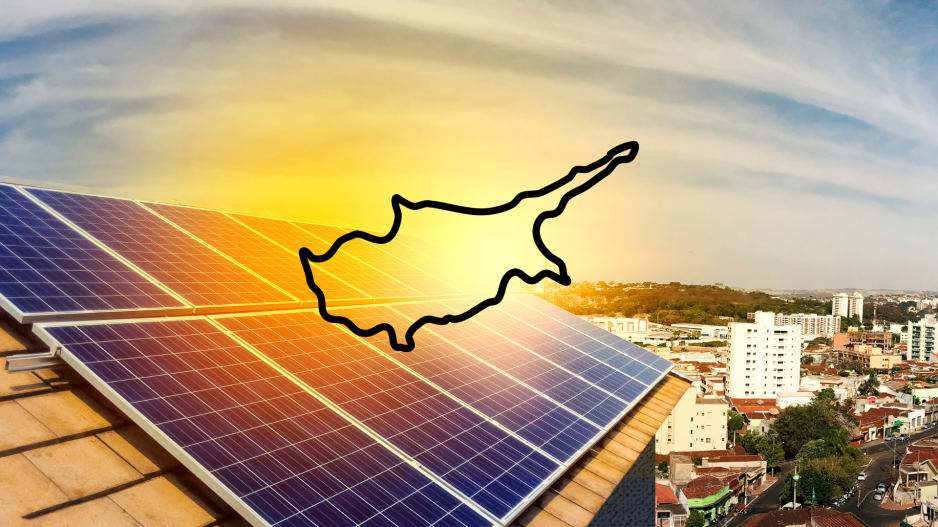How Cyprus Is Leading The Solar Power Revolution In Europe
Through Major Advancements In Renewable Energy And Solar Power Technology
As the world shifts towards sustainable energy, countries blessed with abundant natural resources are looking to harness them for cleaner, more efficient power solutions. Cyprus is uniquely positioned to lead the charge in renewable energy, particularly solar power. With the right investments in technology and infrastructure, Cyprus could not only meet its own energy needs but also become a regional leader in green energy.
The country has long relied on conventional energy sources, but recent advancements in technology, coupled with increasing global pressure to transition to cleaner energy, have opened new avenues for Cyprus to leverage its natural resources.
Cyprus enjoys more than 3300 hours of sunlight annually, making it one of the sunniest places in Europe. This natural advantage provides a significant opportunity for the country to expand its renewable energy capacity. Solar power, in particular, has immense potential due to the availability of solar radiation throughout the year, making it a reliable and consistent energy source.According to the European Commission, Cyprus has a solar photovoltaic (PV) potential of around 1,750 kWh per square meter annually, making it one of the most advantageous locations for solar energy production on the continent .
Cyprus initially set a renewable energy target of 23% for 2030 in its previous National Energy and Climate Plan (NECP). However, more recent projections introduced in the updated NECP suggest that the country could exceed this goal. Based on new scenarios, Cyprus could achieve between 24.3% and 26.5% of renewable energy in its gross final energy consumption by 2030. This upward revision reflects the country’s growing capacity to harness renewable energy sources, particularly solar power, and its increasing investment in green infrastructure and technologies.
In 2023 alone, Cyprus saw a nearly 40% increase in PV installation capacity, from 342 MW to 476 MW, highlighting the country's rapid progress toward green energy. Furthermore, the 'Photovoltaics For All' initiative, launched in January 2024, has been a significant boost for residential solar installations, with a budget of €30 million earmarked to cover around 30,000 households.
The rapid advancement in solar technology is making it more feasible and cost-effective for countries like Cyprus to increase their renewable energy output. Some of the most promising technological innovations include:
1. Improved Photovoltaic Panels: Solar PV technology has dramatically improved in efficiency, affordability, and longevity over the past decade. Modern solar panels can convert sunlight into electricity at an efficiency rate of over 22%, compared to around 15% a decade ago. This higher efficiency means more energy can be harvested from the same surface area, a significant advantage for a small island nation like Cyprus with limited land.
2. Energy Storage Solutions: One of the challenges of solar power is its intermittent nature—solar energy is only produced when the sun is shining. However, advances in battery storage technology, like lithium-ion batteries, are solving this issue. Energy storage systems allow excess power generated during the day to be stored for use during the night or on cloudy days. The EU-backed “Smart PV” project in Cyprus is pioneering efforts in energy storage, helping integrate solar energy into the national grid more effectively.
3. Smart Grids and Digitalization: Cyprus has also been investing in smart grid technology, which integrates digital communication systems with the power grid to optimize energy distribution and manage fluctuations in supply and demand. These smart grids allow for better integration of renewable energy sources and reduce energy wastage by managing consumption patterns. This is critical for ensuring that solar power can become a reliable part of Cyprus' energy mix.
While Cyprus has made considerable progress, several challenges remain. One of the main hurdles is energy storage. With solar power generation steadily increasing, the country faces the issue of curtailment—excess clean energy going to waste due to limited storage capacity. In early 2023, clean energy curtailment spiked to as much as 70% on some days, with an average of 21% of generated solar energy wasted between January and April. The lack of sufficient energy storage systems prevents the island from maximizing its solar potential, an issue that needs to be addressed through investment in battery storage technologies.
Another obstacle is the reliance on fossil fuels for a significant portion of the country’s energy needs. While solar power capacity is growing, Cyprus still depends heavily on oil and gas, which account for over 90% of its energy consumption. To transition effectively to renewable energy, the country will need to reduce this dependency and improve grid infrastructure to better integrate renewables.
Although Cyprus has made strides in renewable energy, there are still regulatory hurdles and bureaucratic delays that slow the approval and implementation of large-scale solar projects. Streamlining the process and providing clearer guidelines for both businesses and individuals looking to invest in solar technology will be crucial for future growth. Similarly, important investments in infrastructure are required, including the modernization of existing electricity networks. The Cypriot government, along with private sector partners, needs to prioritize funding and incentivize innovation in these areas.
As Cyprus expands its solar capacity, it may become a net energy exporter to neighboring regions. While this presents economic opportunities, the country must first ensure that it can meet its domestic energy needs consistently and affordably, particularly during peak seasons when energy consumption is highest.
To tackle these challenges and accelerate the adoption of renewable energy, the Cypriot government has implemented several key initiatives aimed at expanding solar power usage:
-
'Photovoltaics for All' Scheme: Launched in January 2024, this initiative provides €30 million to subsidize solar panel installations for around 30,000 households.
-
812 MW Solar PV Target by 2030: Part of the updated National Energy and Climate Plan (NECP), Cyprus aims to expand solar photovoltaic (PV) capacity to 812 MW by 2030.
-
Incentives for Energy Storage Systems: To address energy wastage from solar curtailment, the government is offering grants for the installation of energy storage solutions to stabilize the grid.
-
Support for Commercial Solar Projects: Additional incentives are available for businesses to install solar panels, promoting solar adoption across the industrial and commercial sectors.
Cyprus has the potential to position itself as a renewable energy leader in the Mediterranean, not only achieving its own sustainability goals but also serving as a model for other nations with similar climates and resources. With the right combination of policy support, technological innovation, and public engagement, Cyprus can transform its energy landscape and become a key player in the global push toward cleaner, greener energy solutions. The opportunities are vast, and by harnessing its natural advantages and embracing cutting-edge solar technologies, Cyprus can secure a sustainable energy future, reduce its dependence on fossil fuels, and contribute to the global fight against climate change.






